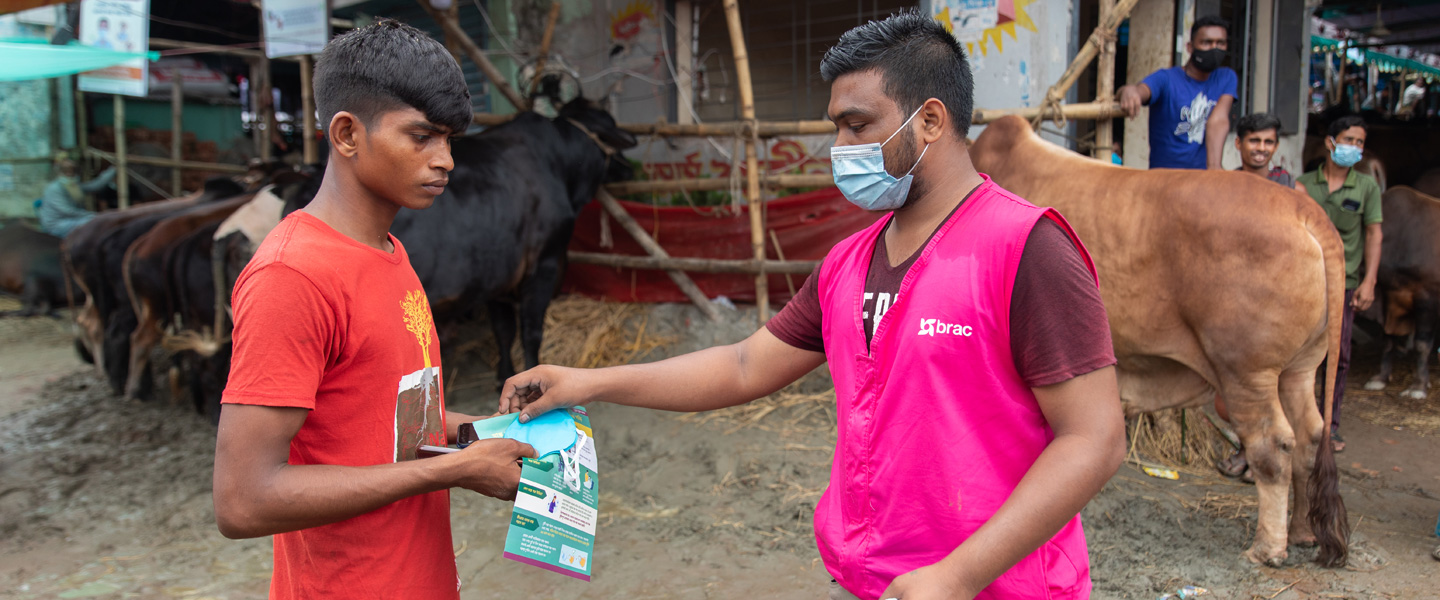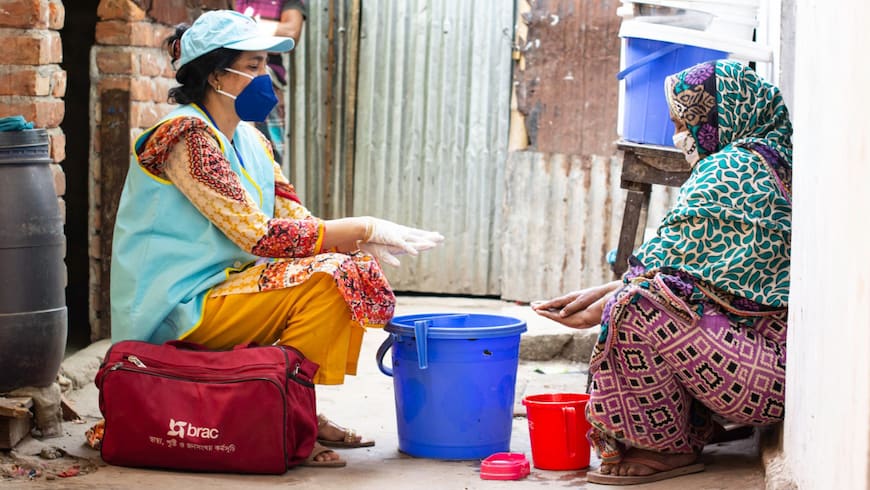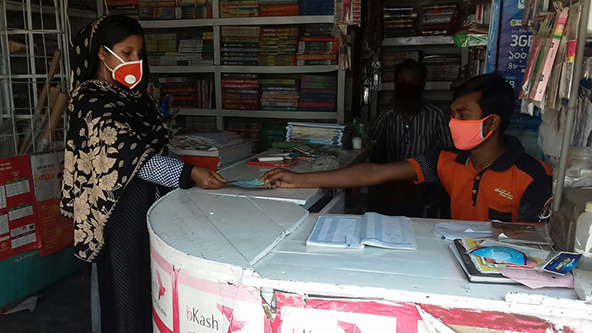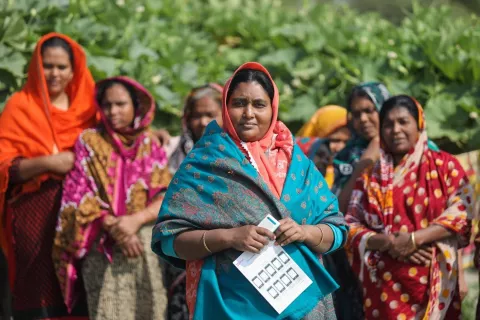The Community Fort for Resisting COVID-19 project is a protracted effort to contain the virus within communities in Bangladesh, by equipping 81 million people across 35 high-risk districts with the tools and knowledge to keep themselves and their families safe. The project is implemented by a coalition of organisations who work at the community level. BRAC sat down with one of the partners, the Embassy of Switzerland in Bangladesh: .
The COVID-19 pandemic has elevated and transformed the role of community health workers, demonstrating their vital role in public health. But BRAC’s new initiative to digitize payments to its 50,000 community health workers in Bangladesh also underscores their potential as proponents of financial access — with enormous implications for global financial inclusion. Community health workers have an extraordinary global presence and impact. The World Health Organization estimates there are more than 4 million community
As the COVID-19 pandemic sent shockwaves around the world, policymakers have been scrambling to adapt responses in a rapidly evolving context. In a country like Bangladesh, for example, where 85 percent of the population earns less than $5.90 a day, government-imposed lockdowns have quickly transformed from public health measures into full-blown humanitarian crises: Bangladesh’s vast informal economy accounts for 9 out of every 10 jobs, so the devastating effects of lockdown
COVID-19 has accelerated the use of digital financial services around the world. For many low-income households, the ability to tap into financial resources from social networks and receive cash transfers has determined whether there is food on the table. . . . Bangladesh’s well-developed digital financial services ecosystem, particularly its grassroots network of mobile money agents, has enabled millions of financial transfers at times when physical movement has been difficult. Rough







